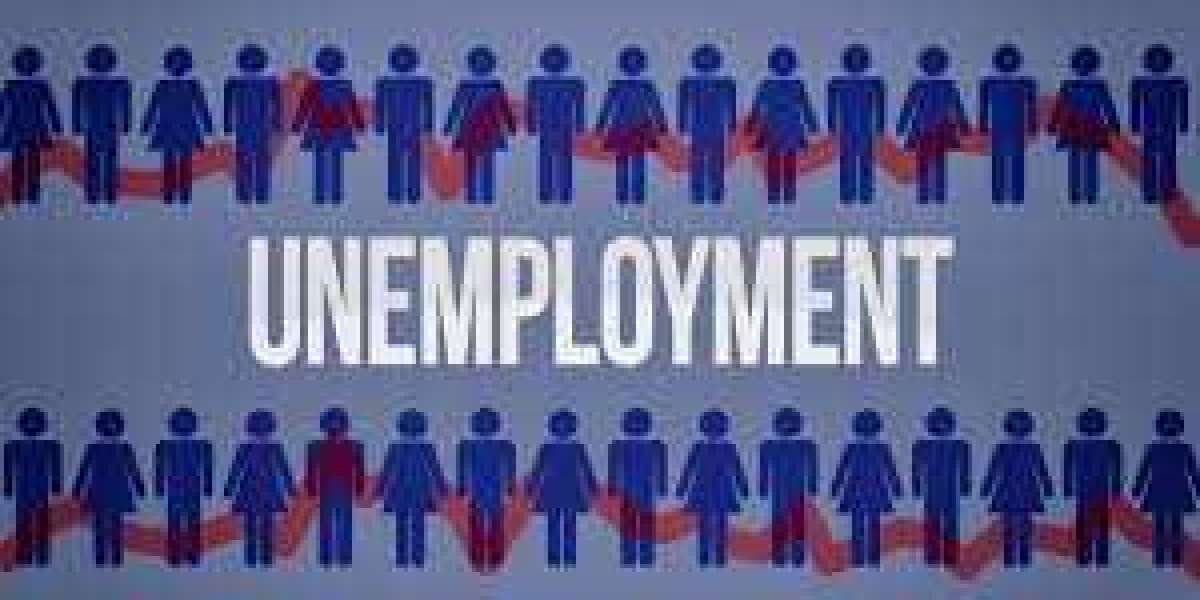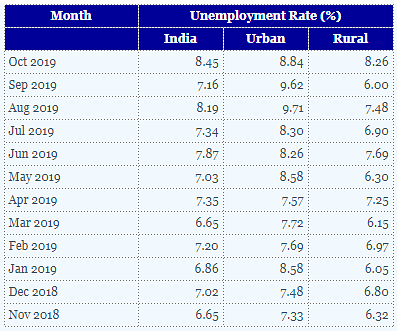Lets start with a devastating statistic.In 2019, India had more unemployed people(26,467,500) (15+) than the entire population of Australia(25,499,884). Centre for Monitoring Indian Economy Pvt. Ltd. has found that unemployment is at 8.5 percent and increasing(Oct. 2019). The ILO's( International Labour Organisation) figure states that 5.3 percent of the working population was unemployed in 2019. That is pretty much equal to the World average(5.4%). Now, whatever the correct figure, our issue is not our unemployment percent, it is the figure. As a percent we may be doing averagely, but 26 million people without a job is somewhat of a discerning figure.
Now, unemployment and economy, what is the link between these two terms? it is very simple. When a person is unemployed, he is not earning money, if he is not earning money it means that he does not have any savings or he is currently using his savings to maintain his lifestyle. That has two effects, one on investment and the other on his consumption. If a man does not have savings it means that he cannot invest money into the economy. Hence there is a shortage in the outflow of cash, into the economy. When a seed is sown into the soil, it needs constant attention and care and watering to grow. The seed can be compared to our economy and the watering can be compared to investment. I also mentioned consumption. According to the Theory of Employment by J.M Keynes, the volume of employment in a country depends on the level of effective demand of the people for goods and services. Unemployment is attributed to the deficiency of effective demand. This means that when people cannot afford to buy goods and services, their consumption decreases i.e their demand for goods decreases. If the demand decreases, prices of goods increases(inflation). Now, when these prices increase, more people cannot afford to buy these goods. Thus supply of these goods also decrease. This leads to further unemployment. The country starts falling into a recession.
So, keeping pure Macro-theory aside, being employed in India does not guarantee a great standard of living. The minimum wage in India is 178 rupees a day.That is approximately 5500 rupees a month. How can anyone live on that amount, let alone feed their large families. And that is just the official minimum wage. Many sectors, take advantage of the illiteracy and ignorance of our people to pay them even less than that. We have so many unskilled sectors that employ manual labourers who live hand to mouth. What is the root cause of all this. it is simple. EDUCATION, or a lack of it.
An uneducated man will be ignorant of his rights, he will have backward views on society and community policies, he will not be able to get a steady job and he will most definitely be taken advantage of. Now imagine 313 million uneducated individuals. What does that do to the employment, consumption, demand, supply, prices and ultimately our economy, total destruction.









